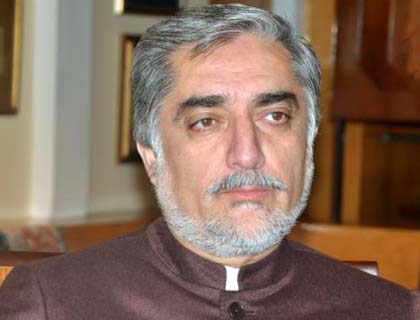KABUL - The newly formed Afghanistan Electoral Alliance (AEA) on Saturday expressed concerns with the government's influence on the functioning of the Independent Election Commission (IEC) and the outcome of the upcoming elections.
As the Presidential election next spring draws near, fears of possible electoral fraud and manipulation are becoming an increasingly hot topic of debate. Memories of widely documented fraud in the 2009 Presidential elections, which was closely contested between President Hamid Karzai and Dr. Abdullah Abdullah, are still fresh in the minds of many Afghans.
"The present government came to power through unfair means, which clearly indicates the extent to which it is committed to holding the elections in a transparent manner," Dr. Abdullah, now the head of the National Coalition and a member of the AEA, told TOLOnews.
Dr. Abdullah, who refused to take part in the second run-off of the 2009 election due to allegations of widespread fraud on the part of Karzai, went further to claim that the government has already infringed on the integrity of the electoral process and the decision making of the IEC.
"Regarding intervention in the electoral process, the government has interfered since the very beginning. For instance, its disagreement with and outright rejection of some articles in the Law of Functioning and Governing of the IEC and the Election Law," he said.
However, the IEC assured that it would not allow any person or group, including the government, to intervene in its management of the election. IEC officials reassured that no IEC staff would work for the benefit of any specific nominee in the upcoming elections.
"It will be a transparent process and people's vote will determine the destiny of the candidates," said Noor Mohammad Noor, Spokesman of the IEC.
The nomination filing process is scheduled to begin on September 16 and will end on October 6. Political parties and coalitions have already begun to align and announce their intentions for the elections.
To be officially registered by the IEC, candidates have to provide signatures, fingerprints or voter card numbers of 100,000 individuals from at least 18 different provinces.
In light of the documentations and eligibility criteria, the IEC made it clear that if any nominee failed to provide the required number of voter cards within the specified timeline, their candidacy would be out rightly rejected. (Tolo News)

